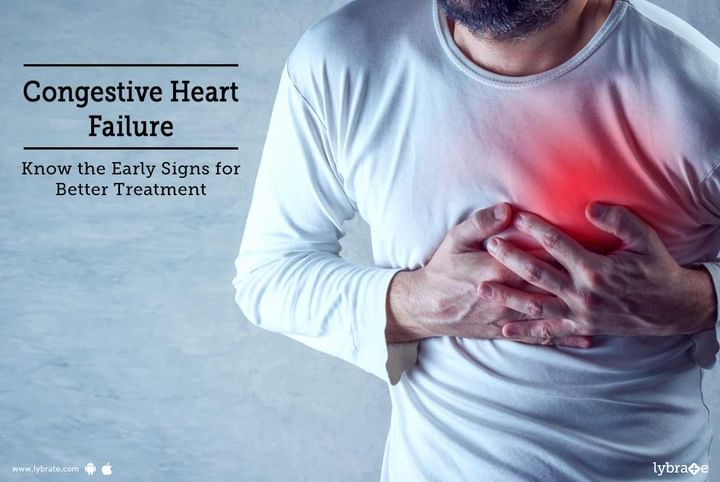Congestive Heart Failure: Know the Early Signs for Better Treatment
Congestive heart failure (CHF) or heart failure is a medical condition in which the heart’s function is affected due to weakening of the heart muscles. This affects the functioning of heart, resulting in lower volume of blood and oxygen in the body.
Common reasons for the weakening of the heart muscles:
- Hypertension or high blood pressure
- Coronary artery disease
- Dysfunctioning of heart valves
- Aging
- Genetics or birth defects
- Family History
Signs and symptoms of congestive heart failure
In CHF, the heart muscles become weaker with time and the condition further deteriorates. Therefore, it is important to look for early signs and symptoms to avoid any complications later. Early signs and symptoms of CHF are:
-
Shortness of breath (Dyspnea): This is one of the most common and an early alarming sign, which is experienced when you exert yourself or when you lie down. This is also called orthopnea.
-
Fatigue and weakness: Simple household activities like cleaning or taking stairs, may result in fatigue, this happens due to lack of oxygen in blood. You may also experience a decreased ability to exercise, difficulty in concentrating and decreased alertness.
-
Edema (water retention): Heart failure also impacts functioning of the kidneys, this might cause accumulation of fluids in blood. You might observe swelling in areas like ankle, legs, and abdomen, this is called as edema.
-
Palpitations: Palpitations are experienced, because the heart has to work harder to pump blood and oxygen to the body. You might sometimes feel that your heart is beating fast
-
Wheezing: It is also a common symptom and results because of build-up of fluid in lungs. Excess fluid can also result in pulmonary edema.
CHF is not a condition that can be reversed, but regular health check-ups and early identification can help in better treatment and improve your quality of life.


+1.svg)
